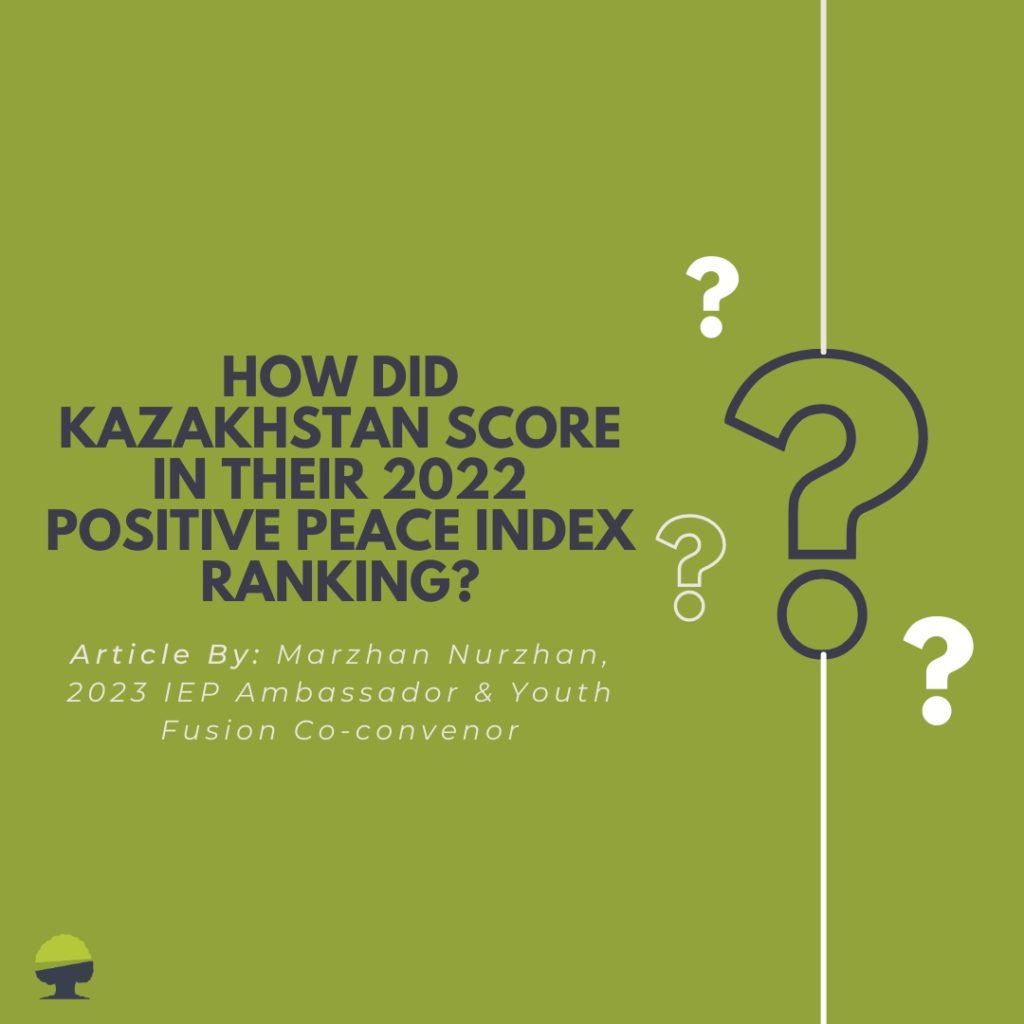In April 2023 I was selected as an Ambassador for the Institute of Economics and Peace (IEP) program. The program is established by the IEP, international think tank founded in 2007 with its headquarter in Sydney, Australia and 6 offices in total around the world. The IEP is aimed to transform the ways on how the world thinks about peace. For that purpose, data is collected to research and analyse peace by measuring 8 indices to showcase that peace can be positive, tangible and achievable for human well being and development.
It is interesting to note that the research by the IEP can be helpful in calculating the economic cost of violence as well as in the analysis of risks and fragilities on country levels based on the developed indices. The IEP challenges traditional approaches towards matters of security, defence, terrorism and development and contributes to a better understanding of Positive Peace in different contexts. According to the IEP, Positive Peace is defined as “the attitudes, institutions and structures that create and sustain peaceful societies” and comprised of 8 pillars (see image 1).
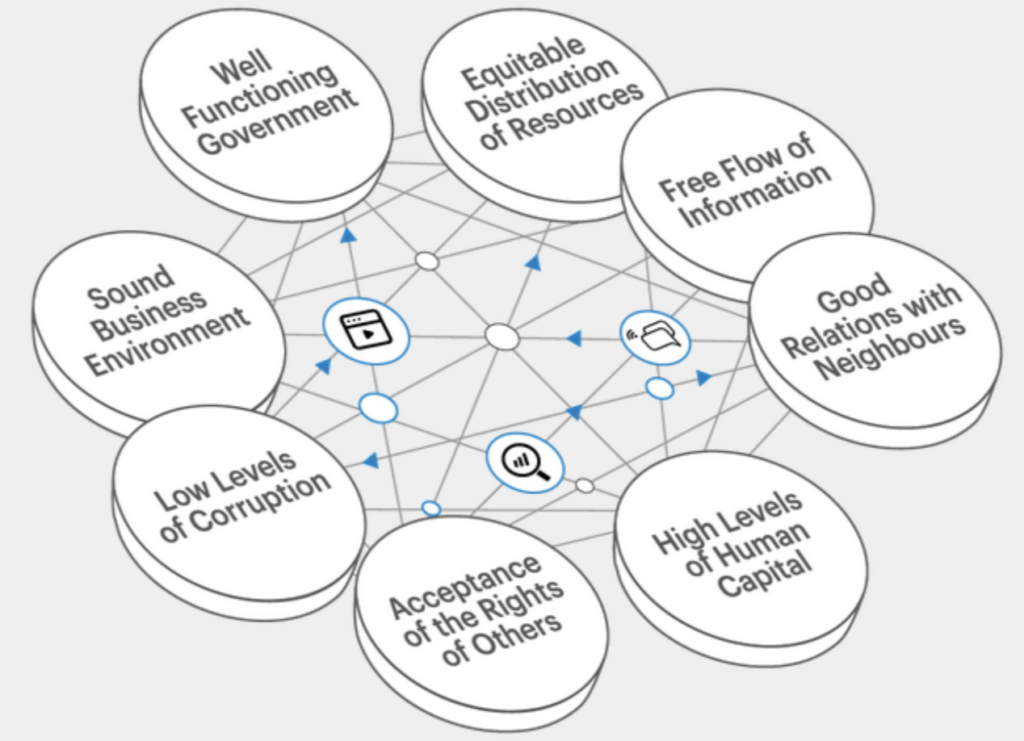
8 indices, Image 1, source: IEP Ambassador program
Thanks to the program which provides useful learning resources and tools on better comprehending and communicating innovative peace research to various stakeholders and audiences, I found out about the dynamics in the position of Kazakhstan in Positive Peace Index (PPI) report issued in January 2022. It is noteworthy to mention that Kazakhstan demonstrated largest country improvements in the PPI along with Uzbekistan, Georgia, Armenia, and Côte d’Ivoire from 2009 to 2020. In particular, Kazakhstan changed its score from 91 to 75 in the global ranking and holds a medium position in the state of positive peace (see image 2).
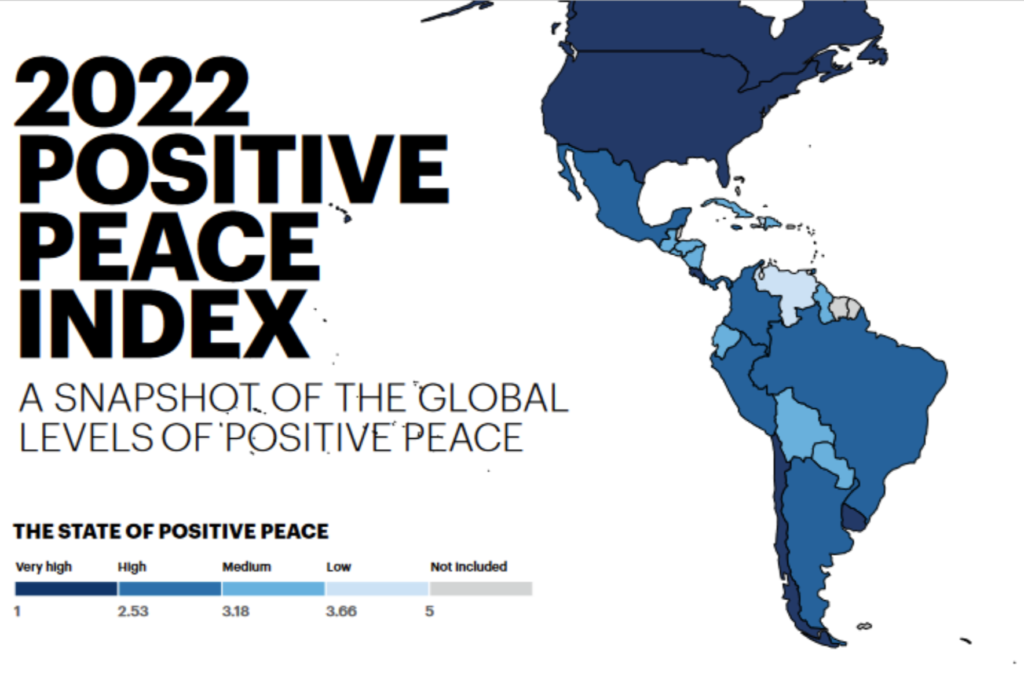
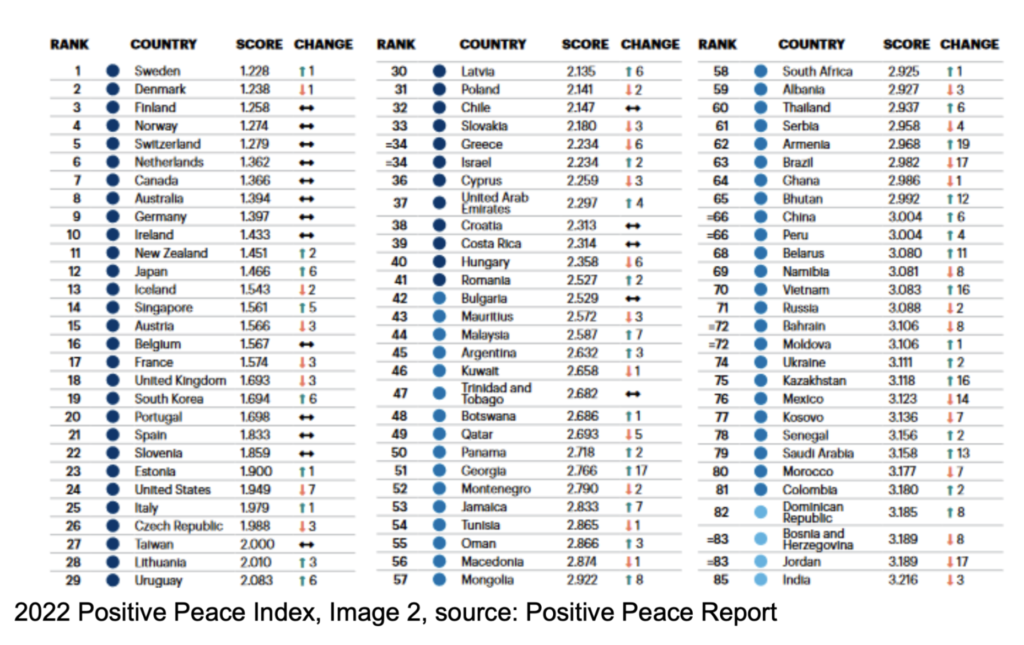
Overall, the Kazakhstan’s score for Positive Peace improved by almost 10% since 2009. Major improvements included the aspects of the Structures and Institutions whereas some decline was conditioned by the Attitudes’ element. For instance, positive changes occurred through realization of socio-economic reforms resulting in reducing the poverty level, governmental bureaucracy and corruption. The growth of the GDP was achieved primarily due to the export of natural resources. International tourism witnessed a rise amongst travellers thanks to the efforts of the government supported campaigns to promote the country abroad (see image 3).
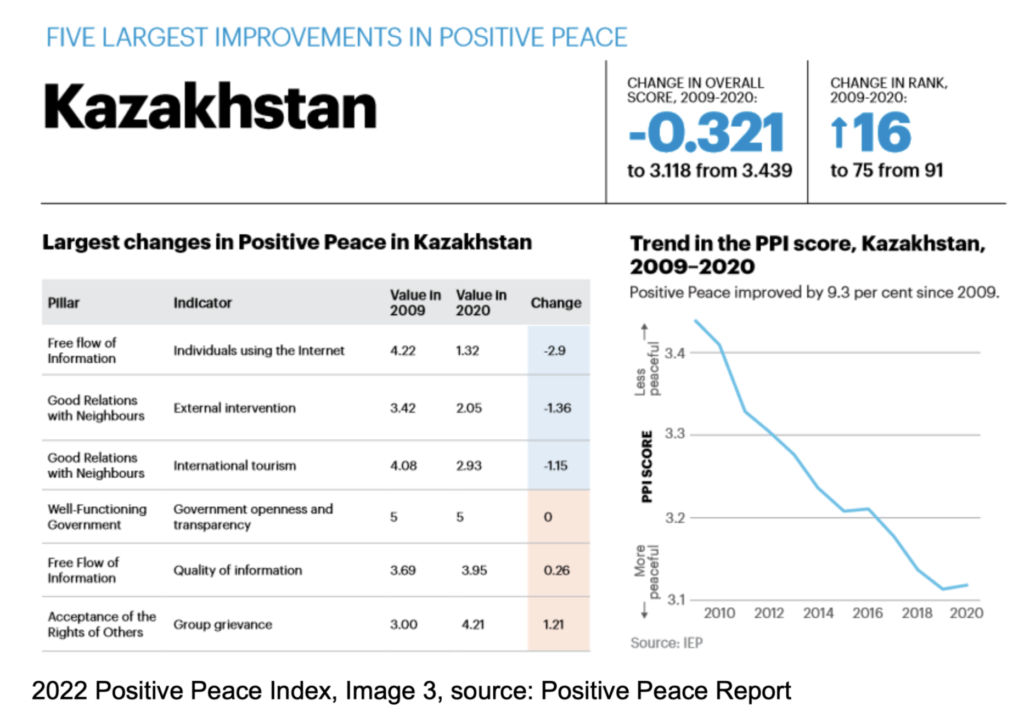
Despite the new edition of 2023 Positive Peace Index briefing being out with an updated findings, it is important to acknowledge the dynamics of the position held by Kazakhstan and the changes that ensued between 2009 and 2020, prior to the pandemic and 2022 January protests. While getting familiar with the 2022 PPI report outcomes, it was an informative experience to learn more about the methodology behind Positive Peace pillars and corresponding indicators to better locate different dimensions of the concept. The resources at the IEP help to expand and broaden the perspectives on peace beyond negative peace paradigm and connect the dots applying system thinking for a more comprehensive understanding of building a path to sustainable peace. Therefore, I would encourage more youth from Kazakhstan and across the globe to consider joining the IEP Ambassadors program as an extension of the Positive Peace Academy and to make use of the resources available on open access via Vision of Humanity website.
Article By: Marzhan Nurzhan, 2023 IEP Ambassador & Youth Fusion Co-convenor
